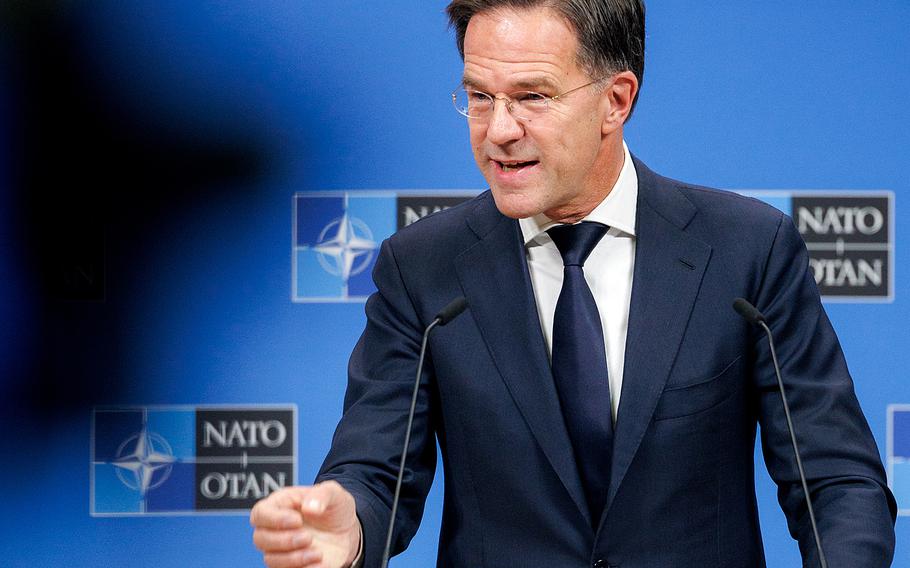
NATO Secretary-General Mark Rutte addresses reporters Dec. 3, 2024, ahead of meetings of the alliance's foreign ministers in Brussels. (NATO)
STUTTGART, Germany— NATO is calling for a probe into the downing this week of an Azerbaijan commercial aircraft as suspicions mount that a Russian air defense system was responsible for the crash.
The alliance’s push for an investigation into the crash coincides with a separate pledge Thursday to support efforts aimed at getting to the bottom of another instance of possible sabotage in the Baltic Sea with potential Russian links.
Secretary-General Mark Rutte on Friday said that NATO will step up its presence in the Baltic Sea in response to the incident.
A day earlier, Rutte said the alliance condemns any attacks on critical infrastructure.
“We are following investigations by Estonia and Finland, and we stand ready to provide further support,” Rutte said in a statement.
Finland and Estonia launched their own investigations Wednesday following the severing of an undersea cable that delivers energy between the two countries. A vessel suspected of being a part of Russia’s shadow fleet of fuel tankers, which was operating in the vicinity of the undersea cable, is at the heart of the probe, European officials have said.
Over the past year, there have been indications of Russia getting more brazen in efforts to sabotage infrastructure across Europe. Numerous acts of arson, suspected targeting of undersea cables and the attempted assassination of a German defense industrial leader are among the operations that have been carried out or attempted, according to allies.
Meanwhile, the downing of Azerbaijan Airlines’ Embraer that killed 38 people and injured numerous others has sparked allegations that a Russian air defense system was responsible for the incident. Numerous aviation analysts have said in online postings that footage of the crash suggested that the plane was hit by a Russian system. The Azerbaijani news agency, Turan, also reported that the plane was fired on while flying near the Russian city of Grozny.
NATO spokeswoman Farah Dakhlallah on Thursday said the alliance wants “a full investigation” into the incident.
Dmitry Peskov, Russian President Vladimir Putin’s spokesman, said during a news conference Thursday that it was premature to blame Russia for the crash.
“It would be incorrect to make any hypotheses before the investigation comes to conclusions, and we definitely cannot do it and no one should do it,” he said.